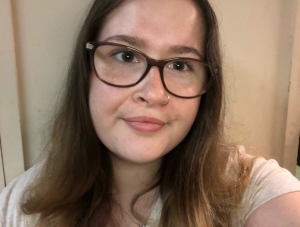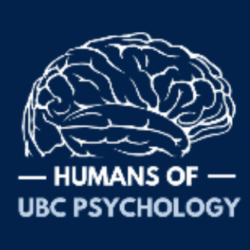By: Maheep Chawla and Gunit Kaur

Disclaimer: TW: Sexual Assault, PTSD
Growing up with cerebral palsy, I was often ostracized and bullied. My teachers would say “Amy struggles with math,” or “Amy has really bad interpersonal skills and can not make friends.” This would make me challenge myself — I would make it a personal goal to prove everyone wrong. I think that’s the biggest reason why I got into education, why I love knowledge and want to better myself.
The biggest impacts in my life that have created and solidified who I am today have been cerebral palsy, depression, generalized anxiety and sexual assault. I was only 14 when I was sexually assaulted. Dealing with the entire situation would give me panic attacks and I would have mental breakdowns. I spent a lot of time with myself crying and listening to music. Those were my coping mechanisms. Finally, I built a relationship with a therapist whom I still talk to today. She even came to my high school graduation and I absolutely love her!
I was diagnosed with PTSD due to the assault, which I have been steadily moving forward from, but I would always blame it on toxic relationships. During my first and second year of university, I wasn’t in a relationship so I had nothing to blame these negative cycles on and I realized it was a personal issue that I had to work through. In my second year of UBC, I was diagnosed with severe, major depression and severe generalized anxiety disorder.
There are probably many students who may come across this post. I think it’s important for them to read that just because a disability is not visible in an individual, does not mean it does not exist. I think that’s something important to identify and talk about because I have experienced this first hand.
My interest in Psychology started with my sexual assault. I wanted to know why people do the things they do and what drives them to do it. I think it’s a really cool area to be able to explore. I was in this cohort called the Human Services career Enhancement Program in high school. It was a three year program in which I worked with university students. I have certificates in subjects like positive psychology, peer counseling, and human rights. That is where my passion for helping people and advocating for the underdog comes from.
Advice for first year students:
Don’t be afraid to reach out to professors and ask for help when you need it! They can often be the most valuable connections you make at university in regards to your field of interest.
Where do you see yourself in 10 years from now?
I hope I’m happy. Ideally, I want two kids and I want to be married. I would like to have a house in the country, but close enough to a city so that I can support my academic goals. I would love to be either a doctor, psychiatrist, neurologist or radiologist. (I am a total nerd! I even have a giant tattoo on my back of a jellyfish with the central nervous system running through it) Maybe even doing research with other sexual assault survivors and learning about the emotional and mental impacts of it.
